Challenging the Tide
For decades, marine sciences and scuba diving have remained male-dominated fields, particularly in the Global South. Women have faced financial barriers, cultural myths, and limited access to underwater research training, restricting their ability to engage fully in ocean conservation. But one initiative in Tanzania is rewriting this narrative, “Tanzania Dive Lab”
Founded in 2021, Tanzania Dive Lab is a trailblazing initiative by Aqua-Farms organization breaking barriers in STEM, providing young women with the skills, certifications, and mentorship they need to become the next generation of female ocean scientists and conservation leaders. As the world celebrates Women’s Month, it’s time to highlight how this initiative is revolutionizing the way women experience and engage with marine sciences.
From the Shoreline to the Deep Blue: Making Ocean Science Accessible
Traditionally, scientific research was confined to the shoreline because few women had access to scuba diving training, a fundamental skill for marine conservation work, furthermore, in many coastal communities, women’s interaction with the ocean has been limited to fishing-related activities or cultural perceptions of the sea as dangerous and unfamiliar.
Tanzania Dive Lab is changing that. Through our fully funded scuba diving certifications, young women are now able to dive, conduct underwater research, and actively participate in conservation projects. Since its inception:
- 21 women have been certified as scuba divers, with one advancing to Dive Instructor level and currently leading coral restoration efforts at Kilwa seascape to restore over 20,000 coral fragments in degraded sites
- Over 30 women and girls have received one-on-one mentorship, providing them with career guidance and professional development in marine sciences through inter-schools’ participatory career fairs
- 8,234 young girls have been reached through school outreach programs, introducing them to STEM opportunities and inspiring them to consider ocean sciences as a viable career through our Aquatic Resources Education Program.

These numbers reflect more than just participation, they signal a fundamental shift in who gets to explore, protect, and lead in marine conservation.
Women Leading the Fight for Ocean Conservation
Beyond dive certifications, Tanzania Dive Lab equips its participants with practical conservation skills, including:
- Coral reef restoration—Training women to restore degraded reefs and support marine biodiversity.
- Underwater ecosystem monitoring—giving women the skills and tools to conduct scientific research that informs conservation policies.
- Leadership capacity development in the blue economy—ensuring women not only work in marine sciences but lead and innovate within the sector.
With a strong gender-focused approach, we ensure that women are not just participants in marine conservation but are at the forefront as leaders and changemakers.

Why This Matters: The Urgency of Women in Ocean Science
As climate change accelerates coral bleaching, overfishing, and ocean degradation, women must be part of the solution. Studies show that when women are included in environmental leadership, conservation efforts are more successful, inclusive, and sustainable. However, globally, less than 30% of marine scientists are women. This is why initiatives like Tanzania Dive Lab are critical not just for gender equality but for the future of our oceans. With targeted opportunities, training, and mentorship, Tanzania Dive Lab ensures that young women are not left behind in the fight to save our planet’s marine ecosystems.
The Future: Building a Stronger Pipeline of Women in Ocean Sciences
Looking ahead, Tanzania Dive Lab has bold ambitions:
- Certifying 100 Divemasters by 2030, with at least 60% being women.
- Expanding fully funded dive training to make ocean science more accessible.
- Strengthening and expanding scientific research programs, particularly in coral and seagrass restoration/ Monitoring
- Reaching an additional 5,000 young girls through STEM outreach to inspire the next wave of female ocean leaders in the next one year
The vision is clear: a future where Tanzanian women don’t just participate in ocean conservation, they lead it.
Celebrating Women in Marine Science
This Women’s Month, Tanzania Dive Lab is not just celebrating the achievements of women in marine sciences, it is actively creating a future where women are empowered to explore, protect, and lead in the blue economy. Through education, training, and leadership development, the initiative is proving that when women dive in, the future of ocean conservation looks brighter, more inclusive, and unstoppable.
Tanzania Dive Lab is more than an initiative, it’s a movement. We extend our deepest gratitude to our steadfast partners, the Nature, Environment, Wildlife, and Filmmaking (NEWF) Organization, through their Africa Refocused Program in partnership with the National Geographic Society for making this transformative journey possible in Africa
Happy Women’s Month to the fearless women and organizations making waves in marine science and conservation!
Delve into some inspiring stories of our 2024 Tanzania Dive Lab participants

Nancy Iraba
Underwater Programme Lead - AFO

